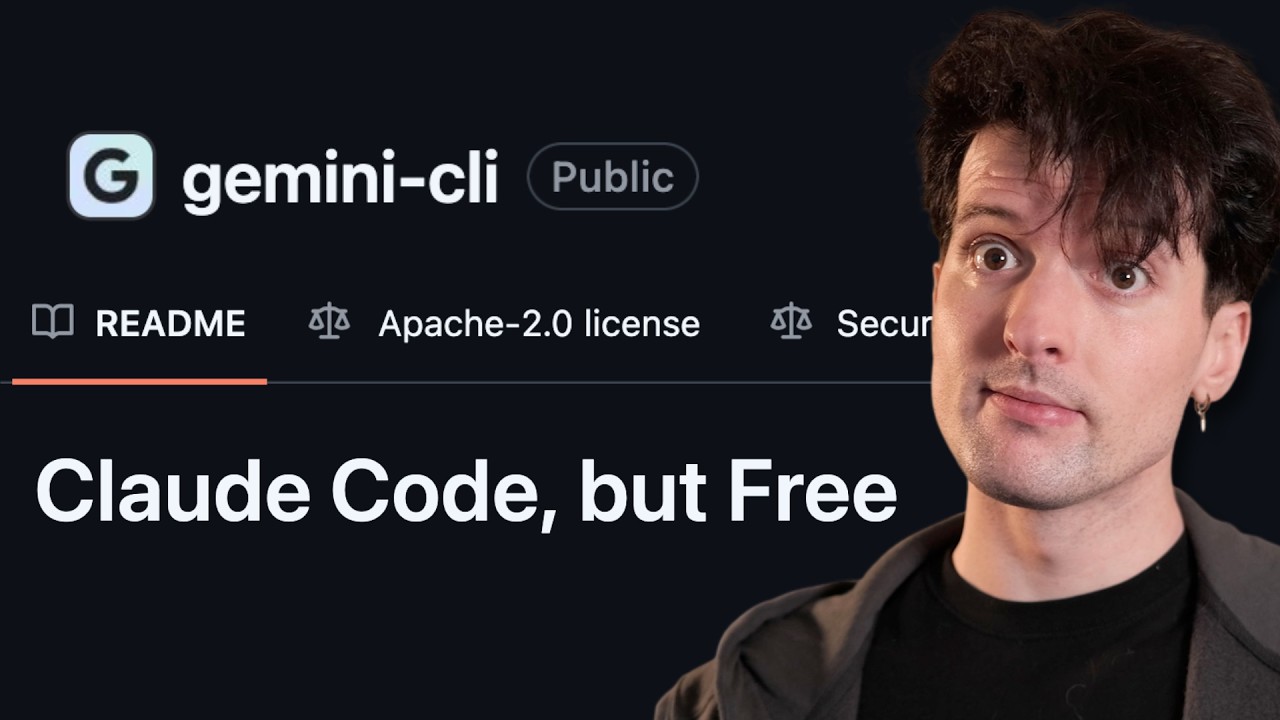The video highlights Google’s surprising release of the open-source Gemini CLI, a powerful and free AI coding assistant that competes aggressively with tools like Anthropic’s Claude Code by offering generous usage limits and a modern, customizable design. It also showcases a playful comparison of AI coding agents, emphasizing the rapid innovation and competitive pricing in the AI developer tool space, encouraging developers to adopt these evolving AI-powered workflows.
The video discusses the recent release of Google’s Gemini CLI, an open-source command-line interface tool designed to bring the power of Google’s Gemini AI model directly into developers’ terminals. This move is surprising as Google has embraced open source with an Apache 2 license, even leaving some copyright details blank, suggesting a semi-rogue internal effort to rapidly push this tool out. The Gemini CLI aims to provide versatile AI assistance not only for coding but also for content generation, problem-solving, research, and task management, integrating seamlessly with VS Code and offering generous usage limits that could cost Google significant money if heavily used.
The presenter compares Gemini CLI with other AI coding assistants like Anthropic’s Claude Code and Open Code, highlighting the fierce competition in the AI code generation space. Anthropic offers a $200 monthly plan with high usage limits, effectively subsidizing heavy users to build loyalty, while Google’s Gemini CLI offers a free tier with extremely generous limits that could cost Google hundreds of dollars daily if fully utilized. This pricing strategy is seen as a competitive move to dominate the market by absorbing costs that smaller players cannot afford, making it a great time for developers to leverage these tools.
The video also delves into the technical aspects of Gemini CLI, noting its TypeScript codebase and use of Ink for building the CLI interface with React-like components. The tool is praised for its modern design, active development, and openness, allowing users to customize system prompts and extend functionality. The presenter contrasts this with other tools like Open Code, which is also open source but aims to rewrite its CLI in Rust for a single binary without dependencies, though this may slow iteration speed. The Gemini CLI’s architecture and tooling choices reflect a modern, flexible approach that encourages community involvement and rapid improvement.
A significant portion of the video is dedicated to a playful “battle royale” comparison where different AI coding agents compete to find and kill each other’s processes, illustrating their responsiveness and aggressiveness in a humorous way. The presenter tests Gemini CLI against Claude Code and Open Code on a real coding task, noting Gemini’s speed and accuracy in generating code changes, though Claude Code offers a better user experience with hotkeys and interaction design. Open Code impresses with its low cost and efficient token usage, highlighting the diversity of strengths across these tools.
Finally, the video emphasizes the broader impact of these AI CLI tools on the developer ecosystem. By dogfooding their own models through CLI tools, companies like Google and Anthropic can better understand and improve their AI’s capabilities, especially in tool calling and code generation. The open-source nature of Gemini CLI fosters transparency and community collaboration, potentially accelerating innovation. The presenter encourages developers to experiment with these tools, noting that the AI coding assistant landscape is rapidly evolving with exciting improvements and competitive pricing, making it an excellent time to adopt AI-powered development workflows.
